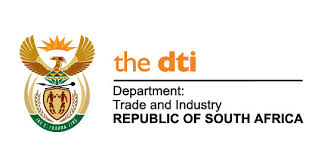
The aim of the DTI is to create and sustain a dynamic industrial, globally competitive South African economy, characterised by inclusive growth and development, decent employment and equity, built on the full potential of all citizens”. It aims to achieve its objectives through the pursuit of a more targeted investment strategy; improved competitiveness of the economy; broadened economic participation of previously disadvantaged individuals (PDIs) into the mainstream economy; and policy coherence. The list below will give you 10 incentives that you could use to expand your business.
1. Offers film incentives
The South African Government offers a package of incentives to promote its film production and post-production industry. The incentives consist of the Foreign Film and Television Production and Post-Production incentive to attract foreign-based film productions to shoot on location in South Africa and conduct post-production activities, and the South African Film and Television Production and Co-Production incentive, which aims to assist local film producers in the production of local content.
Benefits:
• Shooting on location in South Africa, the incentive will be calculated as 20% of the Qualifying South African Production Expenditure (QSAPE). No cap will apply for this incentive.
• Shooting on location in South Africa and conducting post-production with a Qualifying South African Post-Production Expenditure (QSAPPE) of R1.5 million in South Africa, the incentive will be calculated at 22,5% of QSAPE and QSAPPE (an additional 2,5%, cumulative 22,5%)
• Shooting on location in South Africa and conducting post-production with a QSAPPE of R3 million and above in South Africa, the incentive will be calculated as 25% of QSAPE and QSAPPE (an additional 5%, cumulative 25%).
• Foreign post-production with QSAPPE of R1.5 million, the incentive is calculated at 22,5% of QSAPPE.
• Foreign post-production with QSAPPE of R3 million and above the incentive is calculated at 25% of QSAPPE.
Eligible Enterprises:
Foreign-owned qualifying productions and South African qualifying post-production work with:
• QSAPE of R12 million and above, provided that at least 50% of the principal photography schedule is filmed in South Africa, for a minimum of four weeks.
• QSAPPE of R1.5 million and above, provided that 100% of the post-production is conducted in South Africa, for a minimum of two weeks.
• An applicant must be a Special Purpose Corporate Vehicle (SPCV) incorporated in the Republic of South Africa solely for the purpose of the production and/or post-production of the film or television project.
• An applicant must be the entity responsible for all activities involved in the production and/or post-production in South Africa and must have access to full financial information for the whole production and post-production worldwide.
• Only one entity per production and/or post-production for film, animation and television drama or documentary series is eligible for the incentive.
• The applicant must comply fully with its obligations in terms of the Legal Deposit Act 54 of 1997.
2. Incubation Support Programme
The dti initiated the Incubation Support Programme (ISP) to develop incubators and create successful enterprises with the potential to revitalise communities and strengthen local and national economies. In continuing to strengthen economic development through broadening participation in the economy, the ISP aims to ensure that small, micro and medium enterprises (SMMEs) graduate into the mainstream economy through the support provided by the incubators. The ISP is one of the support measures to encourage partnerships in which big business assists SMMEs with skills transfer, enterprise development, supplier development and marketing opportunities.
3. Industrial Financing and Loan Facilities
The Industrial Financing and Loan facilities comprises two components i.e. Pre and post-dispatch Working Capital Facility and the Industrial Policy Niche Projects Fund.
• Pre/Post-dispatch Working Capital Facility offers a working capital facility up to a maximum of R30 million for a period of up to four years, at a preferential fixed interest rate of 6%.
• Industrial Policy Niche Projects Fund: projects identified by the dti sector desks and IDC’s Strategic Business Units that focus on new areas with the potential for job creation, diversification of manufacturing output and contribution to exports, that would otherwise not be candidates for commercial or IDC funding, may be eligible for an MCEP grant that may be structured as part of the borrower’s equity contribution
4. Black Business Supplier Development Programme (BBSDP)
The Black Business Supplier Development Programme (BBSDP) is a cost-sharing grant offered to black-owned small enterprises to assist them to improve their competitiveness and sustainability to become part of the mainstream economy and create employment.
Qualifying criteria of the incentive scheme
• Fifty-one per cent black majority shareholding;
• R250 000 to R35 million turnover per year;
• One year in operation and trading as a business;
• Fifty per cent management positions held by black people (historically disadvantaged individuals);
• Enterprises formally registered for VAT;
• Eligible to obtain funding to a maximum of R1 million:
o R800 000 for tools, machinery and equipment on a 50:50 cost-sharing basis; and
o R200 000 for business development and training interventions per eligible enterprise to improve their corporate governance, management, marketing, productivity and use of modern technology on a 80:20 cost-sharing basis; and
• Be operating and trading for at least one financial year – at the sole discretion of the dti, an enterprise that has been operational/registered for less than a year may be considered for this incentive, provided that the enterprise can supply sufficient evidence to service a tender/contract.
5. Co-operative Incentive Scheme
The Co-operative Incentive Scheme (CIS) is a 100% grant for registered primary co-operatives (a primary co-operative consists of five or more members). The objective of the CIS is to improve the viability and competitiveness of co-operative enterprises by lowering their cost of doing business through an incentive that supports Broad-Based Black Economic Empowerment.
Eligible entities should:
• be incorporated and registered in South Africa in terms of the Co-operatives Act of 2005;
• be emerging co-operatives with a majority black ownership;
• have projects in any of the different economic sectors;
• adhere to co-operative principles;
• be owned by historically disadvantaged individuals (HDIs); and
• be biased towards women, youth and people with disabilities.
6. Isivande Women’s Fund (IWF)
Isivande Women’s Fund is an exclusive fund that aims to accelerate women’s economic empowerment by providing more affordable, usable and responsive finance than is currently available. The IWF assists with support services to enhance the success of businesses. It pursues deals involving start-up funding, business expansion, business rehabilitation, franchising and bridging finance.
The Fund is managed by the Industrial Development Corporation (IDC) on behalf of the dti through a development fund manager. IDF Managers is an SME financier aimed at supporting the creation of self-sustaining black and women owned businesses in South Africa by providing primarily financial and non-financial support to our investee companies.
Fund Criteria
The women enterprises have to meet the following criteria:
• At least 6 months in operation;
• Requires early stage, expansions and growth capital;
• 50% plus one share owned and managed by women;
• Have potential for growth and commercial sustainability; and
• Improved social impact in the form of job creation.
7. Support Programme for Industrial Innovation (SPII)
The Support Programme for Industrial Innovation (SPII) is designed to promote technology development in South Africa’s industry, through the provision of financial assistance for the development of innovative products and/or processes. SPII is focussed specifically on the development phase, which begins at the conclusion of basic research and ends at the point when a pre-production prototype has been produced.
Criteria for SPII Support:
• Development should represent significant advance in technology;
• Development and subsequent production must take place within South Africa;
• Intellectual Property to reside in South African registered company;
• Participating businesses should (must) be South African registered enterprises;
• Government funded institutions (e.g. CSIR) do not directly qualify for support but may participate as subcontractor(s) and;
• No simultaneous applications from the same company.
8. Technology and Human Resources for Industry Programme (THRIP)
THRIP is one of three industry support instruments of the dti designed to enhance industry competitiveness and production capacity through the application of new technologies. The other two instruments are the Manufacturing Competitiveness Enhancement Programme and the Support Programme for Industrial Innovation.
Nature of Projects Supported
• The project must be a high quality Science, Engineering and/or Technology research project whose outputs could make a significant contribution towards improving the industry partner’s competitive edge.
• The project intention should be an innovation, i.e. should lead to the creation and transfer of new knowledge into a process or product (prototype), or the transfer of existing knowledge into a new process or product to benefit the industry partner.
• The project must have clearly defined Scientific and Technology outputs, plus human resource outputs expected for each year of support;
• The causality (demonstrable output or outcome), implementation (the way in which the output/outcomes will be used by the industry partner) and additionally (the degree to which the research would not have been undertaken without THRIP) that will follow from THRIP support must be clearly articulated and be convincing.
• All projects funded by THRIP must include a human resource development component
9. TIPTOP funding
TIPTOP is an incentive mechanism to encourage industry employees to further their studies while continuing their employment. It also encourages academia to obtain industry experience while still being involved in their research activities. The transfer of knowledge is facilitated through the physical relocation of participants between the organisations involved in the projects (from the HEI or SETI to the industrial laboratories and vice versa). THRIP will provide funding for academic researchers or students at postgraduate level in HEIs to work in industrial laboratories, for a maximum period of three years in a funding cycle. Reciprocally, THRIP will encourage and fund industrial researchers and technology managers to be temporarily seconded to a HEI/SETI to conduct research of direct relevance to the industry partner involved or related to their postgraduate studies.
10. Automotive Investment Scheme
The Automotive Investment Scheme (AIS) is an incentive designed to grow and develop the automotive sector through investment in new and/ or replacement models and components that will increase plant production volumes, sustain employment and/ or strengthen the automotive value chain.
Eligible Enterprises
• Light motor vehicle manufacturers that have achieved, or can demonstrate that they will achieve, a minimum of 50 000 annual units of production per plant, within a period of three (3) years; or
• Component or deemed component manufacturers that are part of the Original Equipment Manufacturer (OEM) supply chain; or
• Will achieve at least 25% of total entity turnover or R10 million by the end of the first full year of commercial production as part of a light motor vehicle manufacturer supply chain, locally and / or internationally.





